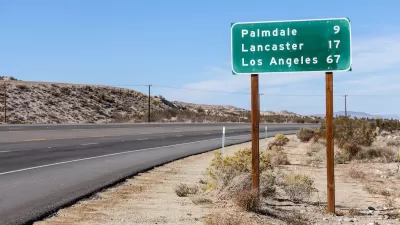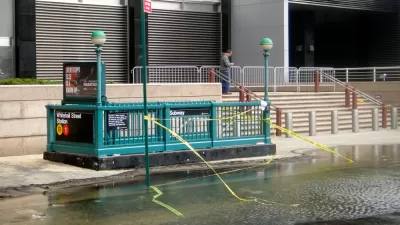The escalating health impacts of climate change, from extreme heat to sea level rise, highlight the urgent need for integrated medical education, proactive communication, and sustainable policy solutions to protect public health.

As climate change intensifies, its wide-ranging health impacts demand urgent attention, particularly as extreme weather events and environmental changes disrupt public health systems. Medical schools in the U.S. are increasingly integrating climate-related health topics into their curricula, recognizing the need for future doctors to identify and treat climate-driven health issues. Communication strategies for educating the public emphasize trusted sources, narratives, and actionable insights to inspire climate-friendly behaviors. Economic losses from extreme weather have reached $227 billion since 2010, underscoring the need for proactive measures to mitigate risks and reduce emissions.
Extreme heat is emerging as a critical health challenge, with heat-related mortality among older adults increasing by 167 percent compared to the 1990s. Heat waves not only exacerbate chronic health conditions but also disrupt sleep, physical activity, and food security. Agricultural workers face heightened risks from rising temperatures, affecting crop reliability and prices. Meanwhile, urban areas are grappling with the heat island effect and power grid stress, prompting cities to explore innovative adaptation strategies to safeguard public health and infrastructure.
Infectious diseases are also being reshaped by climate change, with rising temperatures expanding the geographic range of vector-borne diseases like dengue and malaria. Zoonotic diseases are increasing due to altered ecological patterns, while antibiotic-resistant bacteria and food-borne illnesses are becoming more prevalent. Wildfire smoke, another escalating concern, poses widespread health risks even in regions far from active fires. It contributes to respiratory and cardiovascular conditions and strains healthcare systems during wildfire seasons, with long-term effects particularly concerning for vulnerable populations.
Sea level rise and standing water further amplify health risks, displacing coastal populations and contaminating freshwater supplies with saltwater. These changes disrupt sanitation systems, increase exposure to waterborne pathogens, and disproportionately affect low-income and vulnerable communities. Concurrently, air pollution from fossil fuels continues to impact health, though transitions to clean energy have shown immediate benefits such as reduced asthma-related ER visits and lower preterm birth rates. Addressing these interlinked challenges requires robust action across health, environmental, and policy domains to ensure a sustainable and equitable future.
FULL STORY: Climate and health: Stories to watch in 2025

Alabama: Trump Terminates Settlements for Black Communities Harmed By Raw Sewage
Trump deemed the landmark civil rights agreement “illegal DEI and environmental justice policy.”

Study: Maui’s Plan to Convert Vacation Rentals to Long-Term Housing Could Cause Nearly $1 Billion Economic Loss
The plan would reduce visitor accommodation by 25% resulting in 1,900 jobs lost.

Planetizen Federal Action Tracker
A weekly monitor of how Trump’s orders and actions are impacting planners and planning in America.

Waymo Gets Permission to Map SF’s Market Street
If allowed to operate on the traffic-restricted street, Waymo’s autonomous taxis would have a leg up over ride-hailing competitors — and counter the city’s efforts to grow bike and pedestrian on the thoroughfare.

Parklet Symposium Highlights the Success of Shared Spaces
Parklets got a boost during the Covid-19 pandemic, when the concept was translated to outdoor dining programs that offered restaurants a lifeline during the shutdown.

Federal Homelessness Agency Places Entire Staff on Leave
The U.S. Interagency Council on Homelessness is the only federal agency dedicated to preventing and ending homelessness.
Urban Design for Planners 1: Software Tools
This six-course series explores essential urban design concepts using open source software and equips planners with the tools they need to participate fully in the urban design process.
Planning for Universal Design
Learn the tools for implementing Universal Design in planning regulations.
Caltrans
Smith Gee Studio
Institute for Housing and Urban Development Studies (IHS)
City of Grandview
Harvard GSD Executive Education
Toledo-Lucas County Plan Commissions
Salt Lake City
NYU Wagner Graduate School of Public Service





























